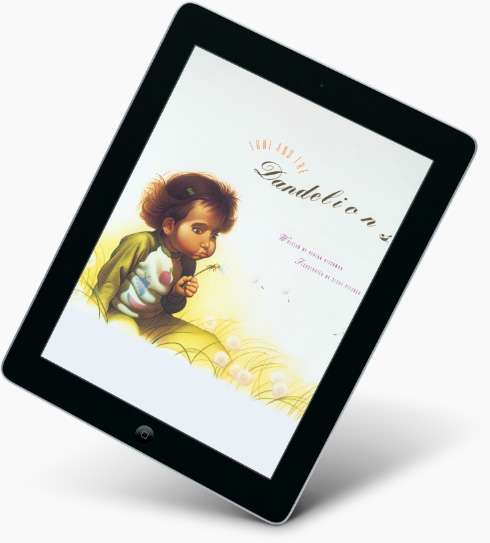New beginnings can be challenging times for all of us and even more so for children.
Uncertainty can offer up a lot of stress, especially for children living with divorce. They can experience overwhelm with unpredictable scheduling and feel torn by their allegiances.
Age-appropriate and inappropriate tantrums can ensue, and unreasonable requests and behaviours caused by emotional volatility can leave a child and parent feeling exhausted and frustrated.
In that moment of parental paralysis, options seem fleeting and downright unavailable.
But I’ve learned as a parent and now grandparent that distraction is a great pacifier and easy in-the-moment solution to a runaway situation.
Recently invited out for dinner with my 6 and 9-year-old granddaughters, I arrived to a fairly quiet and contented bunch. They were playing a word game, clearly doing the trick keeping everyone engaged, and more importantly, at peace.
As additional entertainment while waiting for the food, I suggested colouring an unfinished paint-board one of them had started at my house, which I had brought along with me.
The 6-year-old quickly claimed the board as one she had begun the week before and she excitedly finished her paint project.
Next, Mom suggested a numbers sequencing activity learned in school.
It was going well, until an error was made in the drawing of one of the numbers, specifically the number four. The lines were crooked and misaligned. Melodrama set in! Arms flailed and self-deprecation kicked in!
“I’m no good at this,” she cried. No encouragement or correction could remedy or appease the situation.
Gramma to the rescue! How about we try distraction?
I suggested we play some X’s and O’s. Immediate behaviour improvement. “Sure Gramma, I’ll draw the lines.” The grid was quickly drawn up.
First game, second game, third game were “won” by my young granddaughter, due to my contrived inabilities at playing. My losing and her winning were worth the excitement.
Was it right? In that situation, I would say yes. The game achieved the desired outcome. You could say it was peace at all costs thanks to a winning distraction.
The fourth game, however, was my chance at winning. It was risky, but the 6-year-old accepted her loss with grace. “Okay gramma, you won this time,” she said, willing to concede.
She won the fifth game on her own merit. Seeing the opportunity I missed and bingo, through focused attention to detail, she won the game.
Interesting point to note is that my attempts at distraction morphed into a learning experience and a small but powerful confidence builder, which helped keep peace in the restaurant.
As a young mother, I was convinced that confidence was the route to a happy, well balanced, achieving child. It wasn’t till I was entrenched in my coaching career that I learned that it was actually the opposite.
Developing confidence is achieved through prior successes. Small, incremental achievements, when applauded, can give a child confidence, assertiveness, and a growing positive self-image.
In my young granddaughter’s case, in a short period of time, she came to understand that she had the initial skills needed to give her some winnings even with the occasional losses (two steps forward, one step back).
This acted as a powerful example of intermittent reinforcement. Her successes allowed her to build confidence and her losses garnered an understanding of fair play, sportsmanship, and compassion for self and others. The latter was a bonus learning in the distraction activity.
“But you let her win,” I hear you say. Okay, yes, I let her win the first three games, however, a distinction needs to be made between actually winning and believing you can win. This could be a variation of the saying, fake it till you make it.
Within three games, she started believing she could win, and that gave her the confidence to actually win. Through focused attention, she saw the opportunity and went for it.
Her winnings and losing in X’s and O’s demonstrated that believing in her skill to win, along with repetition and practice, led to success.
Earlier she gave up while writing her numbers. Her belief in her ability to write was not well entrenched yet. But we revisited the writing activity after X’s and O’s and in no time her number four looked great. Self-esteem was restored and dinnertime behaviour improved.
It’s important to keep in mind that as parents we never know when that belief in “I can do it” will kick in. We need to continue to encourage and listen to our children’s in-the-moment needs.
Also, to note, behavioural outbursts can be a result of multiple reasons, including fatigue, lingering emotional challenges, age specific attention seeking, or what I called the failure-syndrome.
Negative and inappropriate behaviour would need positive behavioural correction rather than simple distraction. It’s never good to ignore or sidestep poor behaviour.
But once winning has been experienced, revisiting prior inappropriate behaviour can be discussed, encouraging the child to reflect on their thoughts and feelings about it. Constructive sharing between you and your child can lead to future behavioural changes.
Although distraction and positive behavioural corrections are generally effective, there are a few caveats to consider, and my next article will focus on those considerations.
But for now, please feel free to share your own experiences with how distraction saved the day, be it with children or adults.


